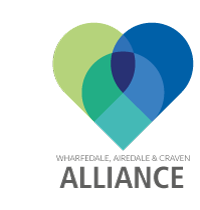There is plenty of information to help you manage your health on the NHS website.
These buttons will take you to different sections of NHS and you can look up information about different conditions and treatments using the A-Z.
Did you know that 10 of the most minor ailments seen by GPs can also be treated by you at home?
By treating yourself at home you could save a trip to the surgery and free up time for the GPs to see patients with more serious health problems.
- Back pain
- Dermatitis
- Heartburn and indigestion
- Nasal congestion (blocked nose)
- Constipation
- Migraines
- Coughs
- Acne
- Sprains and strains
- Headaches
Read about some of the most effective home treatments by clicking on the following link: How to treat everyday ailments at home
Audio Self-Help Guides
Don’t Panic Campaign
The Don’t Panic series of audio self-help guides is designed to provide people with easily accessible information about common mental health difficulties.
They are based on Cognitive Behavioural Therapy (CBT) principals, an approach that has been shown to be effective by the National Institute for Clinical Excellence.
The guides are available to download free of charge via the link below:-
Antibiotics
Each year 25% of the population visit their GP for a respiratory tract infection (eg sinus, throat or chest infection). These are usually caused by viruses. For patients who are otherwise healthy, antibiotics are not necessary for viral infections. These infections will normally clear up by looking after yourself at home with rest, plenty of fluids and paracetamol.
- Ear infections typically last 4 days – 89% of cases clear up on their own
- A sore throat typically lasts 7 days – 40% of cases clear up after 3 days and 90% after 7 days without antibiotics
- Sinusitis typically lasts 17 days – 80% clear up in 14 days without antibiotics
- Cough/bronchitis typically lasts 21 days – Antibiotics reduce symptoms by only 1 day
Antibiotics only work for infections caused by bacteria. Taking unnecessary antibiotics for viral infections should be avoided because they may not be effective next time you have a bacterial infection.
Patients with long-term conditions such as asthma, diabetes and COPD are eligible for flu and pneumococcal vaccinations. Ask at reception for more information.
Medicine cabinet
You can treat many minor ailments such as colds, coughs and indigestion by keeping a well-stocked medicine cabinet at home.
We suggest you keep the following:
- Paracetamol and aspirin (children under 16 and people with asthma should not take aspirin)
- Mild laxatives
- Anti-diarrhoeal medicines
- Rehydration mixture
- Indigestion remedy (for example, antacids)
- Travel sickness tablets
- Sunscreen – SPF15 or higher
- Sunburn treatment (for example, calamine)
- Tweezers and sharp scissors
- A thermometer
- A selection of plasters, non-absorbent cotton wool, elastic bandages and dressings
Remember:
- Keep the medicine chest in a secure, locked place out of reach of small children
- Always read the instructions and use the suggested dose
- Watch expiry dates – don’t keep or use medicines past their sell-by date
- Take all unwanted and out-of-date medicines back to the pharmacy
Wharfedale, Airedale & Craven Alliance videoscribes
Health information on common medical conditions are available on the links below:
Visit our Who should I see page for more information.


